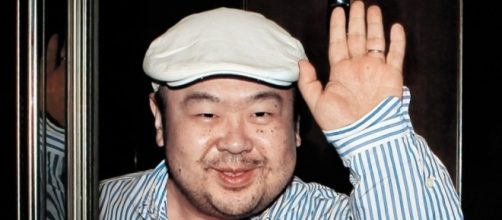Kim Jong-nam, the exiled half-brother of Norther Korean dictator Kim Jong-un, was killed in Kuala Lumpur International Airport last Monday, February 13th. Two women approached The North Korean while he was at the check-in counter and one woman held his back while the other sprayed a mysterious liquid on his face. Airport surveillance cameras captured the attack and the victim's subsequent attempt to receive aid from airport staff and police:
Jong-nam’s condition deteriorated rapidly after the attack and he was pronounced dead during the ambulance ride to the hospital.
The Malaysian police have arrested four suspects, including a woman from Indonesia that perpetrated the attack. The Indonesian woman, Siti Aisyah, claimed that she believed that she was participating in a television prank show when she sprayed Jong-nam with the mysterious liquid. The police believe that the women may have been used as scapegoats for the killing and are currently searching for four North Korean suspects that left Malaysia the same day that the attack occurred. The Malaysian authorities have stated that they believe the North Korean regime to be behind the death of Kim Jong-nam.
Crossed-off name on Kim Jong-un’s kill list?
Kim Jong-un has been eliminating potential threats to his power for years.
The autocratic ruler actually had his own uncle, Jang Song Thaek, eaten alive by dogs in 2014 to eliminate a possible threat to his power. The untimely killing of his half-brother fits this narrative of power consolidation well. Jong-nam was Kim Jong-il’s eldest son and many North Korean experts believed that he would succeed his father as head of the Democratic People’s Republic of Korea (DPRK) after his death. However, the former heir apparent was shamefully caught trying to sneak into Japan to visit Tokyo Disneyland in 2001. The highly-publicized incident was embarrassing for the North Korean regime and Jong-nam reportedly fell out of favor with his father after the event. The shamed son was exiled from the DPRK in 2003 and had been living in different places, most recently on the Chinese island of Macau.
Jong-nam had advocated for reforms in the DPRK and had been critical of the regime. The one-time heir apparent had stated that he feared for his life and clearly the apprehension was warranted.
What’s next
Kim Jong-un is clearly developing a more aggressive approach that threatens to destabilize the regional status quo. The suspected involvement of the DPRK regime in the death of Jong-nam has occurred in the wake of another successful North Korean missile test. These increasingly antagonistic activities are placing increased pressure on China, the primary supporter of the North Korean regime, to reign in their neighbor to the north. The manner in which the international community responds to the brazenness of the DPRK dictator will set the tone for how much farther the authoritarian leader can push the envelope.

